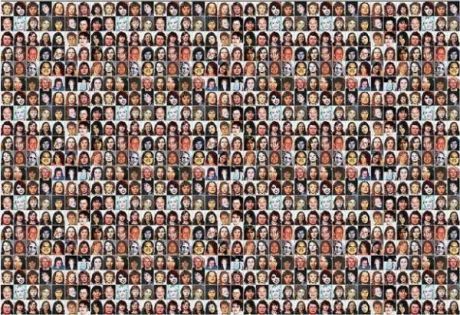News
You are here
Canada’s Genocide

June 3, 2019
After almost 3 years of hearings, the National Inquiry into Missing and Murdered Indigenous Women and Girls has issued its final report. It concludes that the thousands of deaths and disappearances are part of a “Canadian genocide” fueled by “state actions and inactions rooted in colonialism and colonial ideologies.”
Some politicians are more upset about the use of the term genocide than the systemic violence. Bernard Valcourt, a Minister of Aboriginal Affairs during Stephen Harper’s Conservative regime, dismissed the report as “propagandist”. “I take offence to Canada being accused of genocide. My comprehension of genocide is measured by what genocide really is.”
The use of “genocide” is in line with research co-authored by Bernie Farber, past CEO of the Canadian Jewish Congress. “Genocide is the sum of the social practices, assumptions, and actions detailed within this report. The national inquiry's findings support characterizing these acts, including violence against Indigenous women, girls, and 2SLGBTQQIA people, as genocide.”
The authors acknowledge that they cannot accurately count the victims largely because police forces–especially the RCMP–refused to cooperate. Of almost 300 documents and reports requested by the Inquiry, the RCMP has delivered only 107. And many of those were so heavily redacted and edited as to be useless.
The obstruction by the state police is evidence that genocidal practices are not a thing of the past, but bred in the bone of the colonial Canadian state. Witness Senator Lynn Beyak, who posted racist letters to her website defending the residential schools, and portraying Indigenous people as lazy freeloaders. When challenged she refused to remove the letters, calling them “edgy and opinionated” rather than racist. It took months for the Senate to censure her, a slap on the wrist in the form of a brief suspension.
Justin Trudeau supported the Inquiry verbally, but refused to acknowledge the word “genocide”. As long as he is bent on forcing oil pipelines through Indigenous territories his words ring hollow.
The Report, entitled Reclaiming Power and Place, is over 1200 pages and contains more than 200 recommendations. There are chapters on confronting oppression the Right to Culture, the Right to Health, the Right to Security, and the Right to Justice. As well as challenging federal and provincial governments the Report calls for more solidarity from the settler population.
There’s a long way to go. The latest stats show that 60 % of Indigenous children on reserves live in poverty. Indigenous youth counted for 46 % of young people admitted to youth correctional services (2016-17) while accounting for only 8 % of the population. Governments refuse to acknowledge environmental racism, like the mercury poisoning in Grassy Narrows. And reports of racist abuse of Indigenous sexual assault victims at the hands of police continue to surface.
The MMIWG Inquiry and labeling Canada’s colonial past and present “genocide” is an important step forward. But the lack of implementation of the recommendations of the Truth and Reconciliation Report is a warning that the Canadian state will not change its ways without struggle.
Section:










